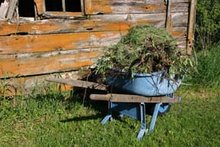 This photograph of Europa rising over Jupiter's horizon is a result of the New Horizons project, a joint effort of NASA, the Johns Hopkins University Applied Physics Laboratory, and the Southwest Research Institute.
This photograph of Europa rising over Jupiter's horizon is a result of the New Horizons project, a joint effort of NASA, the Johns Hopkins University Applied Physics Laboratory, and the Southwest Research Institute.
This is an amazing project, and these sets of images meant to convey the beauty of space are extraordinary. Even though this photograph in particular is reminiscent of the iconic images of the earth rising over the moon's horizon that have become a part of the visual vocabulary of most of the world, Jupiter seems a very cold, lifeless beauty, not quickening the sense of longing and belonging that the images of earth rising do. Here is a quotation about this image from the New Horizons folks.
"New Horizons took this image of the icy moon Europa rising above Jupiter’s cloud tops with its Long Range Reconnaissance Imager (LORRI) at 11:48 Universal Time on February 28, 2007, six hours after the spacecraft’s closest approach to Jupiter. The picture was one of a handful of the Jupiter system that New Horizons took primarily for artistic, rather than scientific, value.
This particular scene was suggested by space enthusiast Richard Hendricks of Austin, Texas, in response to an Internet request by New Horizons scientists for evocative, artistic imaging opportunities at Jupiter. The spacecraft was 2.3 million kilometers (1.4 million miles) from Jupiter and 3 million kilometers (1.8 million miles) from Europa when the picture was taken. Europa's diameter is 3,120 kilometers (1,939 miles).
The image is centered on Europa coordinates 5 degrees south, 6 degrees west. In keeping with its artistic intent - and to provide a more dramatic perspective - the image has been rotated so south is at the top."
Thirty-five years ago the famed physician, scientist, and essayist Lewis Thomas commented on one of the earthrise photographs in his essay "The World's Biggest Membrane." The essay first appeared in The New England Journal of Medicine and was later included in Thomas' Lives of a Cell (1974).
"Viewed from the distance of the moon, the astonishing thing about the earth, catching the breath, is that it is alive. The photographs show the dry, pounded surface of the moon in the foreground, dead as an old bone. Aloft, floating free beneath the moist, gleaming membrane of bright blue sky, is the rising earth, the only exuberant thing in this part of the cosmos. If you could look long enough, you would see the swirling of the great drifts of white cloud, covering and uncovering the half hidden masses of land. If you had been looking for a very long geologic time, you could have seen the continents themselves in motion, drifting apart on their crustal plates, held afloat by the fire beneath. It has the organized, self-contained look of a live creature, full of information, marvelously skilled in handling the sun.
It takes a membrane to make sense out of disorder in biology. . . . It breathes for us, and it does another thing for our pleasure. Each day, millions of meteorites fall against the outer limits of the membrane and are burned to nothing by the friction. Without this shelter, our surface would long since have become the pounded powder of the moon. Even though our receptors are not sensitive enough to hear it, there is comfort in knowing that the sound is there overhead, like the random noise of rain on the roof at night."

 What would this man have to do in order that all good people, democrats, republicans, and independents, might join together to impeach him? He has engineered a slow, lingering coup d'etat and we seem incapable of recognizing what has happened to us and to this flawed but potentially great democracy. Why isn't there a 200 million person march on Washington to send this evil-doer out-- not out of George W. Bush's government but out of our government? This photo was published in today's Washington Post as part of the sobering series by Barton Gellman and Jo Becker on the excesses of power of Vice President Richard B. Cheney.
What would this man have to do in order that all good people, democrats, republicans, and independents, might join together to impeach him? He has engineered a slow, lingering coup d'etat and we seem incapable of recognizing what has happened to us and to this flawed but potentially great democracy. Why isn't there a 200 million person march on Washington to send this evil-doer out-- not out of George W. Bush's government but out of our government? This photo was published in today's Washington Post as part of the sobering series by Barton Gellman and Jo Becker on the excesses of power of Vice President Richard B. Cheney.









